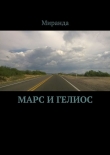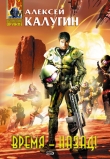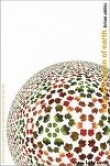
Текст книги "The Long Mars"
Автор книги: Terence David John Pratchett
Соавторы: Stephen Baxter
Жанры:
Научная фантастика
,сообщить о нарушении
Текущая страница: 8 (всего у книги 25 страниц)
13
A BOARD THE GALILEO the hab module was divided into three levels, and while there were common utilities, such as a galley, toilet and zero-gravity shower, and such universal essentials as closed-loop air and water recycling systems, the designers had assigned a whole level to each of the three crew to serve as his or her personal space. And in the hours and days that followed their booster firing, and their launch into interplanetary space from the Brick Moon, the wisdom of that design was impressed on Frank Wood.
The Galileo’s motley crew wasn’t going to be a particularly sociable bunch.
Oh, they cooperated over their chores. There were shared maintenance duties: clean the dust filters, check the air balance, scrub down the walls to prevent the mould and algal infestations that tended to grow in untended corners in the absence of gravity. Sally and Willis accepted with good enough grace the work rotas Frank volunteered to draw up. They also quickly got used to the routine of meal preparation, most of it based on Russian space cuisine of decades past: there were tins of fish, meat and potatoes, dried soup and vegetable purée and fruit paste, nuts and black bread, and coffee, tea and fruit juice in bulbs . . . Some crews would have invested a lot of energy in coming up with inventive menus with those limited ingredients, Frank knew. Not the crew of the Galileo. Frank also insisted that they all kept up a routine of physical training, to offset the effects of weeks of weightlessness on their performance when they got to Mars. They had a treadmill, and elasticized frames to stress their muscles and bones. This alone occupied hours for each of them every day.
But that left plenty of spare time in each twenty-four-hour cycle – time father and daughter seemed to use, at first anyhow, to get as far from one another as possible.
Willis Linsay immediately disappeared into his own agenda of research and experimentation, using the computer gear and small laboratory he had installed on his personal deck. He seemed entirely unperturbed by being thrown into interplanetary space.
His daughter, meanwhile, a solitary type too, withdrew into herself. She slept a lot, exercised ferociously over and above the required minimum, read for hours using the onboard e-library she’d helped stock. Willis Linsay played a lot of music: Chuck Berry, Simon and Garfunkel. This antique stuff, echoing around the hab module, seemed to disturb Sally. Frank guessed this was the soundtrack of her childhood, and not particularly welcome to have back.
Even though Frank had known Sally from the days of the troll incident at GapSpace years back, he barely got a word out of her, at first. He sensed apprehension in her, however, despite her hard-nut exterior. He had to remind himself that she had actually discovered the Gap in the first place, along with Joshua Valienté and Lobsang. Maybe it was something to do with the fact that she didn’t seem to know why she was here, why her father had brought her along on this jaunt.
As for Frank himself, he was just thrilled to be out here. For the first few days he gave himself up to a kind of triumphant joy. He’d been to the Brick Moon before, a number of times. Now he was in deep space, at last. Going to Mars! A Mars anyhow.
And the scenery, at least at first, was spectacular. Seen from outside, the Brick Moon was a bulbous cluster surrounded by sparking lights and swarming activity – and when the Galileo’s fusion rocket opened up he watched that huge, busy complex fall away like it was dropped down a well. A spectacular sight, yes, but it would always be one of Frank’s biggest regrets that unlike the astronauts of NASA’s heroic age he would never see the Earth itself from space. Of course that was the point. At the Gap you didn’t need to escape from the Earth to reach space, because there was no Earth. But it did kind of diminish the spectacle.
However, after the first few hours, once the Brick Moon was out of sight, he had the consolation of the stars, any direction you looked away from the sun, an infinity of them. Frank liked to sit in his portion of the hab module peering out into that endless drop, letting his ageing eyes become accustomed to the blackness, his pupils widening to their fullest. And he would make out another peculiarity of this particular stepwise reality: a band of soft dusty light spanning the zodiac, the sky’s equator. All this washed past his view, for the whole stack of the ship was rotating on its axis with slow grandeur, a measure taken to equalize the heating of the raw sunlight.
After a couple of weeks, Sally took to emerging from her own space and joining Frank by his windows. Frank was no psychologist, and took a robust view of interpersonal dynamics; in his view it didn’t matter if a crew bonded all the way to Mars or not, just so long as they got there in one piece. And he certainly wasn’t going to get caught up in what looked to him like a very peculiar father-daughter relationship. So, when Sally showed up, Frank would acknowledge her presence with a nod, but kept his own counsel. Let her talk in her own time, or not.
It was the end of the second day of this tentative companionship before she spoke meaningfully to him.
She pointed at the band of zodiacal light. ‘Asteroids, right?’
‘Yeah. You can see something similar at home – I mean, in the skies of the Datum. But there’s more asteroids here. A whole extra band, actually, between the orbits of Venus and Mars.’
She thought that over. ‘Oh. The wreckage of Dead Earth, the planet Bellos smashed.’
‘That’s it. But it’s not wasted. We’re out there already, in little dinky rocket ships, mining those fragments of planet for water, hydrocarbons, even iron from what used to be the Earth’s core. Easily accessible. And we’re manufacturing rocket fuel. Eventually, the plan is, we’ll be independent of materials brought over from the stepwise worlds altogether. Some people are planning to live out there, on the asteroids themselves. Mind you, others find it kind of morbid that we’re feeding off the ruins of a devastated world.’
Sally shrugged. ‘I think I lost my capacity for sentimentality a long time ago. Ever since I came across evidence of a few Donnerparty disasters out in the reaches of the Long Earth. Butchered human bones. This is just another kind of cannibalism, I guess.’
She said this with such flat finality that Frank had to look away, shuddering.
‘Come on, Frank. You’re tougher than that. Whatever it takes to survive, right?’
‘Sure. So.’ He forced a smile. ‘How are you finding the trip so far?’
She thought that over. ‘Surprising, if I’m honest.’
‘Surprising?’
Loosely strapped into her chair, she touched the hull wall. ‘For a start, this is kind of a bigger rocketship than I imagined we’d need.’
‘Well, the technology’s incredible. We’re driven by a stream of tiny fusion bombs, pellets of deuterium and hydrogen that are made to detonate by a laser barrage, hundreds of bomblets every second going off behind a big pusher plate. We plan to use it in stacks to assemble more ambitious missions further out, to Venus, even Jupiter maybe—’
‘Slow down, Apollo 13, you’re hyperventilating.’
‘Sorry. This stuff’s been my life’s work. My boyhood dreams before that.’
‘My problem is I don’t see why you need a rocket at all. I thought the Gap saved you from all that.’
Frank said, ‘Well, to get to Mars from the Datum, you’d have to climb out of Earth’s gravity well first. That’s why you need a Saturn V, even to get to the moon. Using the Gap we don’t need a Saturn V to get away from Earth. But we do still need a rocket for the Mars transfer.
‘You have Earth and Mars following their circular orbits around the sun, OK? Even when you’re in free space at Earth’s orbit, you need a boost from some rocket or other to add at least seven thousand miles per hour to your speed to get up into an elliptical transfer orbit, as we call it. You coast all the way to Mars’s orbit, and then you need another squirt, six thousand miles an hour this time, to slow down at Mars. And then you land. The whole thing is reversed when you come home. Actually our ICF rocket will provide a lot more push than that minimum.’
‘I guess that’s all logical enough.’
‘Except,’ called Willis Linsay, ‘that you skipped over the real mysteries behind all this.’
Frank turned to see Willis swimming up the fireman’s pole that ran along the axis of the hab module. He asked, ‘Which are?’
‘How does conservation of momentum work between the stepwise worlds? Or indeed conservation of mass? Sally, if you step from Earth A into Earth B, sixty-some kilograms of mass suddenly disappear from A and appear in B. How come? Mass, like momentum and energy, is supposed to be conserved. These are basic principles of physics – without which, incidentally, this firecracker of a rocketship wouldn’t work at all.’
‘True enough,’ Frank said. ‘So what’s the answer?’
Sally said, ‘Mellanier—’
‘That fraud!’
‘– would say that the conservation principles work across the worlds, not just in one world. Earths A and B share their mass and momentum, so nothing overall is lost or gained.’
‘Whereas others,’ Willis said heavily, and Frank suspected he was talking about himself, ‘argue rather more convincingly that such principles can only work one world at a time. And if you step to world B, you borrow a little momentum from that world – it slows its rotation just a little – and you borrow some mass-energy from its gravity field.’
Frank said, ‘Surely you could devise tests to establish which is which.’
Willis shrugged. ‘The effects are too small. Some day it will be done. But the latter is the more appealing idea, don’t you think? That a destination world somehow welcomes you as you step in, by giving of itself. And of course you give back when you step away.’
Sally said sourly, ‘If you like your scientific hypotheses to come loaded with emotional freight – yes, I guess that would be an appealing idea . . .’
Frank could sense a lifetime of fencing going on under the surface of this quasi-technical conversation. They didn’t even share the same accent. Willis was pretty broad Wyoming, which must have caused him to be underestimated by snobbier academics, while the daughter had a much more neutral accent, as if she’d deliberately distanced herself from her origins, from her father. Frank didn’t detect any real animosity between father and daughter. They were too vivid for that, the pair of them, much too real personalities in their own right to have that kind of negative relationship. But it certainly wasn’t all positive. They were two powerful people, with a shared past, yes, respectful, but wary of each other.
‘By the way,’ Sally asked now, ‘which way’s Mars?’
Frank glanced out of the window, thought for a second, then pointed over his shoulder. ‘Thataway. It won’t show up as more than a spark for, oh, weeks yet. Then we’ll see it hanging there like an orange. It has big features, you know, the giant mountains, the canyons, visible from far away – well, you saw the images back in the auditorium. And on this Mars there’s oceans, and the green of life.’
Sally glanced at her father. ‘And is that the point of this mission? To figure out why Mars, this Mars, is warm and wet and alive?’
‘Oh, no,’ Willis said dismissively. ‘That’s trivial.’
Frank raised his eyebrows. ‘Life on Mars is trivial? Tell that to Percival Lowell. So if life on Mars is just part of the scenery—’
‘It’s life on the Long Mars that I’m after. Life, and mind, and what it might – what it must have achieved.’
Sally faced him. ‘To what end, Dad? What are you looking for – some kind of technology, like a new Stepper box? And what will you do then? Just turn it loose? Mellanier once compared you to Daedalus, the father of Icarus, the boy who used his father’s invention to fly too high and upset the gods. And that’s you all over, isn’t it? Tinker, tinker for the sake of it, caring not one whit about the consequences. The Daedalus of your age.’
Willis rubbed his chin. ‘But Daedalus is supposed to have invented the saw, the axe and the gimlet among other goodies. That’s not such a bad charge sheet, is it? And as for—’ An alarm sounded softly. ‘Ah. That’s my latest experiment. Excuse me . . .’ Stiff but oddly graceful, he swam through the microgravity to the fireman’s pole and pulled himself away to his lab area.
Frank eyed Sally. ‘You OK?’
She didn’t reply. For a long while she sat silent, withdrawn, quite unreadable to Frank.
Then she said, ‘So what could go wrong, Frank? With the Galileo. I know they put us through some of the emergency procedures. But that mostly involved us climbing into air bags and floating around helplessly, while you saved the day.’
Frank shrugged. ‘I think Al and the others figured that was all you would sit still for. And Willis even less. So we fed you the most basic stuff.’
‘OK. But I’m here now. And I’m used to relying on myself for my own survival.’
‘Sure. Well, there are plenty of contingencies we couldn’t survive at all. A massive enough meteor strike. A bad enough failure of the propulsion system during the firing phases – we do have nuclear fusion explosions going on back there.’
‘And what is survivable?’
‘Plenty. A smaller meteor puncture. A containable fire. An atmosphere leak, or some other failure of the air supply. A drastic power failure. In most of these situations the automatics will save us. In most of the rest, I’ll be there to deal with it. And failing that, you can talk to the Brick Moon.’
‘And if all those fallbacks fail?’
Frank grinned. ‘I’d say the primary key survival skill for you is going to be learning to put your pressure suit on, in the dark, with the air failing around you, and the emergency horns sounding like the opening bars of Doomsday. Once you’re in your suit you’ll have time to deal with the rest. Takes hours of practice to master that.’
‘Well, I guess we have hours.’
And so they started, with Sally learning every inch of the ship and its equipment and various failure modes to the best of her ability, while Willis locked himself away and pursued his own projects.
That was how it was, pretty much all the way to Mars.
14
IN HER LOG, Maggie Kauffman noted that it was only once they were past Earth West 1,617,524 – past the world of the beagles, and with that final crewmate on board – that her journey truly began.
Harry Ryan finally declared himself happy with what he described as his ‘fusion-cuisine of an engine suite’, with robust American engineering wrapped around a core of Chinese gel-based ingenuity, and he permitted Maggie to order full throttle, at last.
Maggie herself was in the wheelhouse when it began, with a few of her officers, ready for any of the multiplicity of breakdowns and disasters that Harry had predicted. Wu Yue-Sai was making notes as ever. Maggie had a fine view of the outside worlds through big panoramic windows – windows with tough ceramic shutters ready to clang shut in an instant in case of emergency.
And she watched those worlds flip by, one after the other, ever faster as the drive cut in.
At first the view was routine, if you could call anything about the Long Earth routine: just one arid world after the next in this belt of ‘Para-Venuses’, dissolving away at one per second, the rate of her heartbeat. Then the rate increased steadily, up to two Earths a second, faster, and Maggie felt her own heart beat faster in response, her body’s rhythms unconsciously tracking the music of the worlds. But as the rate increased further Maggie began to find the strobing of realities uncomfortable. They should be in no danger. It was routine now to test twain crews and passengers for epilepsy, and Doc Mackenzie had ordered everybody aboard to put themselves through a final automated screening before consenting to this engine test.
And still the worlds swept past, faster and faster. Maggie became aware that the Earths flickering below were greener than before, the sky sporadically bluer. They must already be out of the Venus belt, then. But the worlds were now flying past her vision too fast for her to make out any details, nothing save the basics of sky, horizon, land, and the steely shine of the river beneath them – a remote cousin of the Ohio, if the ships’ geographers were to be believed.
And then the worlds blurred. They reached a certain critical point when the stepping rate was faster than her vision processing system could follow, as if the worlds – each a whole Earth! – were no more than fast refreshes of a digital image. So there was no longer a sense of stepping from Earth to Earth, but more of continuous movement, of flow and evolution. The sun was a constant, hanging in a sky that was a melange of all the weathers, a kind of deep blue blandness. Below, the river spread out across its flood plain like a pale, greater ghost of itself, and forest clumps melded into a greenish mist that lingered over the landscape. It was no longer possible to make out any animals in the individual worlds, any birds; even the mightiest herd in any one world would be there and gone before her eyes had time to see it. Yet there was a sense of continuity, of the connectedness of all these living worlds, these actualized possibilities for Earth. All of this was sporadically illuminated, or darkened, by Jokers, exceptions to the norm, there and gone every few minutes.
And the Cernan hung constant in the sky, a reassuring companion – the work of mankind enduring against the flickering of multiple realities.
Now there was a thrum of mighty engines pushing the ship through the air, and the landscape shifted beneath the prow of the Armstrong. Continental drift was to some extent an affair of chance, and the positions of the landmasses shifted from world to world, mostly by very little, sometimes by a lot, but cumulatively by significant amounts. So the airships had to navigate geographically, trying to stay roughly over the centre of the North American craton, the antique granite mass at the heart of the continent. Again they were following the precedent of the Chinese expedition five years earlier.
Lieutenant Wu Yue-Sai stood by Maggie, and boldly took her hand. ‘It is just as it was for us aboard the Zheng He,’ she said. ‘As if we see these worlds, the whole of the Long Earth all at once, through the eyes of a god.’
Only a few hours later the ships rushed across the Gap, around Earth West 2,000,000, without pausing. Harry Ryan declared himself happy with the resilience of his ships given the test of that dose of vacuum and weightlessness.
The character of the Earths did change somewhat after the Gap, when they paused to sample, image, visit. The worlds became blander, more colourless, with forest clumps dominated by huge ferns. These in turn gave way to more arid landscapes, with the vegetation restricted to the rivers and the fringes of the oceans. The worlds seemed to come in rough bands of similar types, tens or hundreds of thousands of steps wide, analogous to the Belts that had been identified by the first mappers of the Long Earth a couple of decades back.
Hemingway and his scientists tried to label and investigate a representative sample. They stopped to study features of geology, or geomorphology, or climatology – even astronomy, such as unusual features on the moon. They even checked for radio transmissions bouncing around remote ionospheres, and looked for the lights of human-lit fires, for nobody knew how far the colonization wavefront had come in the years since Step Day. The scientists reported that the basic suites of vegetation and animal types were similar either side of the great interruption of the Gap, and that was no great surprise. But they saw no stepping humanoids beyond the Gap: no trolls, no kobolds, none of the species that were common on the lower worlds. Again that was no great surprise, since, Maggie supposed, most steppers would not take the risk of crossing the Gap. But, for a veteran Long Earth traveller, it seemed strange to see worlds where there had never been trolls at all, worlds where the ecology had not been influenced by their massive presence – worlds which had never known the trolls’ long call.
On the ships sailed. Data poured in, a torrent.
But it was always life that snagged the attention. And the life they saw got odder and odder.
Most of these worlds seemed to host complex life – that is, animals and plants, more than just bacteria. But the worlds of the Long Earth differed from each other by chance, by outcomes of random events in the past that varied a little or a lot. And the great extinction events that littered Earth’s history seemed to Maggie to represent the biggest of all rolls of the cosmic dice. Even worlds closer to the Datum than Valhalla appeared to reflect different outcomes of the big impact that had ended the reign of the dinosaurs on the Datum. There, people had found strange assemblages of beasts that were like dinosaurs or not, like mammals or not, like birds or not.
But where the Armstrong travelled now, things got weirder. Maggie learned that there had been another milestone mass extinction on Datum Earth more than two hundred million years before humanity had arisen; a community crowded with the first mammals, early dinosaurs and the ancestors of crocodiles had been smashed. Now, millions of steps from the Datum, they found the consequences of different outcomes of that epochal event, jumbled ecologies where mammalian hunters tracked dinosaur-like herbivores, or insectile predators chased crocodilian prey. There were worlds with crocodiles the size of tyrannosaurs, or raptors the size of mice with teeth like needles . . .
Whatever the details, what struck Maggie cumulatively, as these first days of rapid travel wore by, was the sheer, relentless vigour of an elemental life force which seemed to seek expression anywhere it could, any way it could, on any available world – an expression in living things shaped by relentless competition, creatures breathing, breeding, fighting, dying.
It got overwhelming after a while. Maggie retreated into the familiar routine of work.








